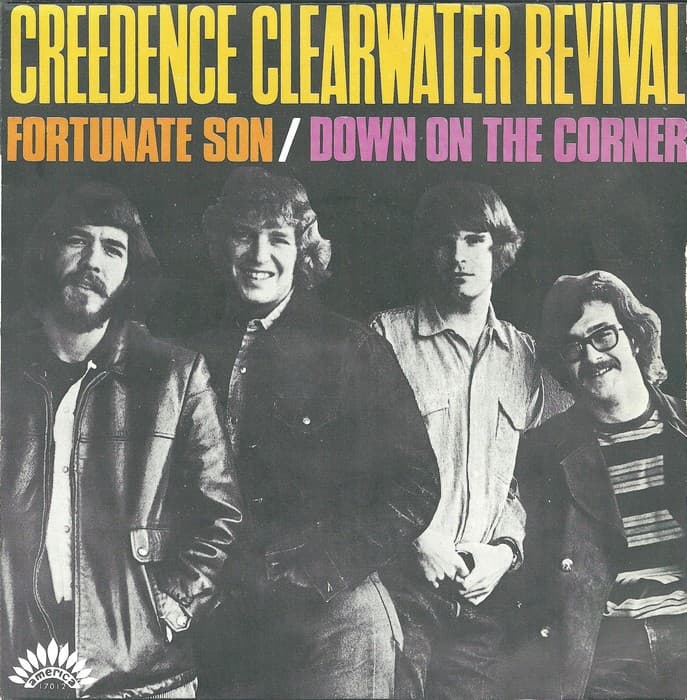
“Fortunate Son” – A Defiant Rock Anthem by Creedence Clearwater Revival
Released in 1969, “Fortunate Son” by Creedence Clearwater Revival (CCR) became one of the most powerful and enduring protest songs of the Vietnam War era. With its raw energy, driving rhythm, and politically charged lyrics, the track resonated with listeners frustrated by social inequality and the growing divide between the privileged elite and working-class Americans. Featured on CCR’s album Willy and the Poor Boys, “Fortunate Son” climbed to #3 on the Billboard Hot 100, cementing its place as a rock classic and an anthem of dissent.
From the opening riff, John Fogerty’s distinctive guitar snarls with urgency, setting the stage for a song that wastes no time in delivering its message. The gritty vocals, driven by Fogerty’s impassioned delivery, tap into the anger and frustration of young Americans who felt betrayed by the political establishment. The song’s protagonist speaks from the perspective of an ordinary citizen, railing against the hypocrisy of those in power. The chorus, with its memorable refrain—“It ain’t me, it ain’t me, I ain’t no senator’s son!”—expresses the resentment of being forced into a war fought by those who had no choice, while the privileged remained safe at home.
Musically, “Fortunate Son” embodies the best of CCR’s swamp rock sound, blending elements of Southern rock, blues, and folk with a straightforward, infectious groove. The rhythm section—Stu Cook on bass and Doug Clifford on drums—keeps the song moving with a relentless drive, while Fogerty’s biting guitar solos add emotional weight. Despite the song’s politically charged lyrics, the instrumentation remains simple and direct, reflecting the no-frills approach that defined CCR’s music.
Lyrically, the song critiques the class divide that shaped the Vietnam War, highlighting how wealth and influence allowed some to avoid the draft, while others were sent to fight. Lines like “Some folks are born silver spoon in hand / Lord, don’t they help themselves” underscore the disparity between those born into privilege and those who bear the burdens of war. The song’s anti-elitism and frustration with systemic injustice resonated with listeners across generations, cementing its status as an enduring protest anthem.
While “Fortunate Son” was initially tied to the social and political turmoil of the 1960s, its themes remain relevant today, often invoked in conversations about inequality and the abuse of power. It has been featured in countless films, TV shows, and commercials, though sometimes controversially—its anti-establishment message has been co-opted in ways that obscure its original intent. Regardless, the song continues to stand as a symbol of resistance, reminding listeners that the struggles between privilege and fairness are ongoing.
Decades after its release, “Fortunate Son” remains one of Creedence Clearwater Revival’s most beloved and recognizable tracks, celebrated not only for its unforgettable riff and infectious energy but also for its bold message. It captures the spirit of defiance and frustration felt during one of America’s most turbulent eras and continues to inspire new generations to question authority and fight for justice. The power of “Fortunate Son” lies in its simplicity, both musically and lyrically—a rallying cry that urges listeners to recognize and resist the inequalities that persist.